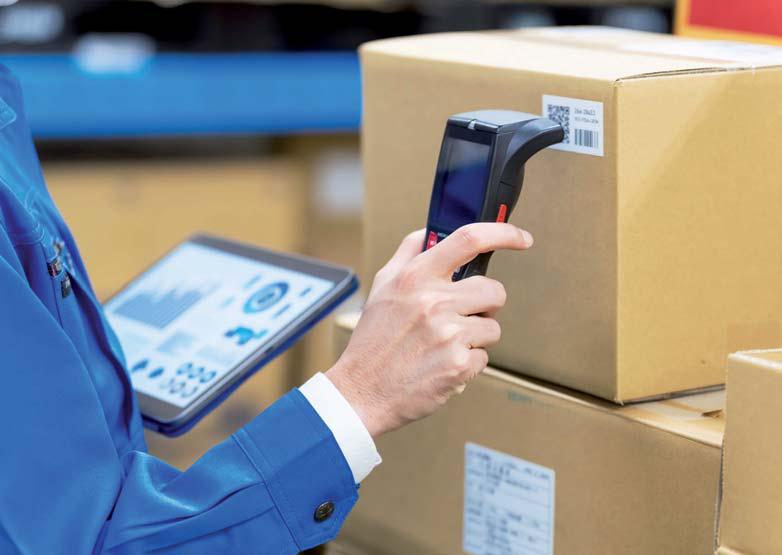RFID Back in Business

When RadioFrequency Identification (RFID) became commercially available 50 years ago, it held a lot of promise, especially in an industry like retail that required precision in inventory management. However, being expensive, the technology didn’t see much adoption despite its potential.
The technology not only persisted but has also evolved over the years to become more relevant and affordable, making it one of the preferred choices for retail decision-makers. A significant cant 58%of warehouse decision-makers plan to deploy RFID by 2028 in their operations to help increase inventory visibility and reduce out-of-stocks, according to the Warehouse Vision Study 2023 by Zebra Technologies.
Furthermore, a majority of warehouse decision-makers plan to deploy fixed, passive or handheld RFID readers that can better track assets, workers and goods throughout the warehouse environment, the study found.
There are multiple areas where retailers are trying to use RFID to either enhance customer experience or reduce the cost of operations, say experts.
“RFID is a technology which is very old and going to have a huge impact in retail as it is now available and accessible,” said Ranjan Sharma, CIO and Supply Chain Head, of Bestseller India, a fashion and apparel brand.
Why RFID?
Retail operations pass through a series of steps from inventory to return management. Often, keeping track of all the stages manually becomes laborious and ends in errors and delays, and impacts protability.
According to recent data from Shopify, which helps small businesses build an online presence, inventory is the largest expense for retailers. For every dollar US retailers make, they have $1.40 of inventory in stock.
Diese Geschichte stammt aus der December 2023-Ausgabe von Images Retail.
Starten Sie Ihre 7-tägige kostenlose Testversion von Magzter GOLD, um auf Tausende kuratierte Premium-Storys sowie über 9.500 Zeitschriften und Zeitungen zuzugreifen.
Bereits Abonnent ? Anmelden
Diese Geschichte stammt aus der December 2023-Ausgabe von Images Retail.
Starten Sie Ihre 7-tägige kostenlose Testversion von Magzter GOLD, um auf Tausende kuratierte Premium-Storys sowie über 9.500 Zeitschriften und Zeitungen zuzugreifen.
Bereits Abonnent? Anmelden

Building the Midmanagement is Critical in a Scaling Organisation
Nirav Jagad, Chief People Officer of Sugar Cosmetics speaks about ensuring the right! opportunities for the right talent in a complex omnichannel organisation that is on a fast track to growth

Uppercase Upping the Ante
Travel gear brand Uppercase is upgrading the standard of luggage in India through innovative approach and prodcuts and sustainable practices

The Strategy is to Go City by City and Saturate Each
Gerard McGurk, Head of Retail and Commercial Operations at Index Living Mall and Mahesh M, CEO, Creaticity speak about Thailand's numero uno furniture brand's strengths, its India entry and strategy

Design and Experience Differentiate Indriya from Competitors
Sandeep Kohli, CEO of Aditya Birla Jewellery’s Indriya about the brand’s strengths, strategies and aspirations

At Good Glamm, AI Chatbots Have Slashed Workload by 70-80%
Deep Ganatra, Chief Product & Technology Officer (CPTO), The Good Glamm Group sheds light on the role of technology in the beauty and wellness industry and its impact on personalisation

How Blinkit, Swiggy Instamart, Zepto and Others are Redefining Shopping
A quick snapshot of India’s quick commerce landscape highlighting key players, challenges and opportunities

Electronics and Q-commerce: A Marriage of Convenience
Why more and more electronics and gadget brands are taking to q-commerce

5 ways D2C Brands Can Leverage the Power of Technology
The direct-to-consumer (D2C) market in India is at an exciting juncture, with brands redefining how they operate, innovate, and engage with consumers. But what does the future look like for these brands as they adopt technology?

The Business of Offering Immersive Experiences
Shopping centers are using immersive experiences to attract more shoppers and boost business

5 ways D2C Brands Can Maintain the Growth Momentum
D2C brands should embrace a customer-first mindset, leverage technology, and know when to expand offline to keep the growth momentum going
